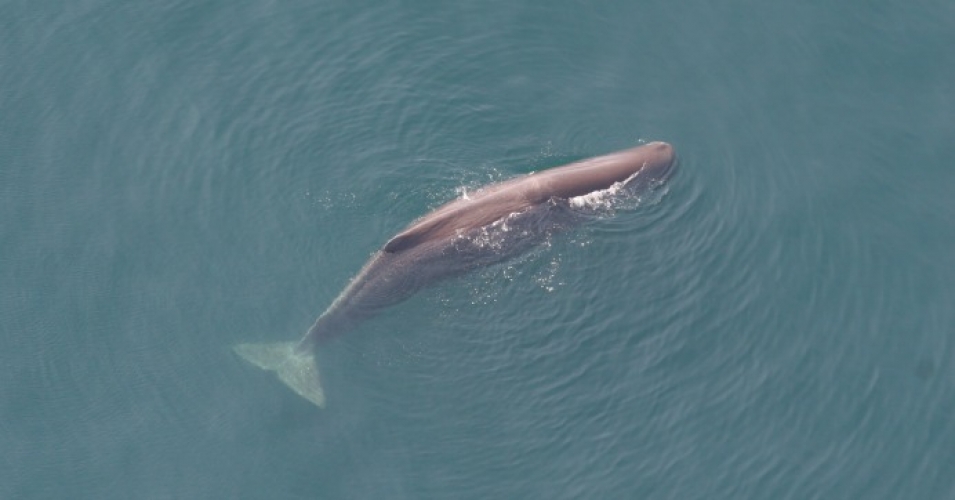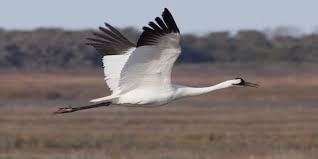US Navy-trained dolphins and their handlers will participate in a last-ditch effort to catch the last few dozen of Mexico’s vaquita porpoises to save them from extinction. The trained animals will use their sonar to locate the extremely elusive vaquitas, then surface and advise their handlers. The number of vaquitas, the world’s smallest and most endangered porpoise species, has been …
Andrea Germanos – Scale of Threat Seismic Blasting Poses to Whales, Dolphins Laid Bare
Though the Obama administration in March put a halt on drilling for oil and gas in Atlantic, the dolphins and whales inhabiting the waters are still at risk, says one ocean conservation group, as proposed seismic airgun blasting to look for reserves of the fossil fuels would leave the marine mammals “profoundly impacted.” The scale of the threat they face was laid bare on …
Marjorie Cohn – Numbers in Obama’s Drone Deaths Report Just Don’t Add Up
More than three years after President Barack Obama pledged to be transparent about the United States’ lethal drone program, his administration has finally come forward with an accounting of the numbers of civilian deaths that resulted from drone strikes between Jan. 20, 2009, and Dec. 31, 2015. But they only cover airstrikes “outside areas of active hostilities,” which encompasses Pakistan, …
Lorraine Chow – 97% of Endangered Species Threatened by 3 Common Pesticides
The U.S. Environmental Protection Agency (EPA) has released its first-ever analysis on the effects of three common pesticides—chlorpyrifos, diazinon and malathion—on endangered and threatened species and designated critical habitat nationwide. The resounding conclusion? Pesticides are terrible for them. According to the report, malathion and chlorpyrifos harms an astounding 97 percent of the 1,782 animals and plants protected under the Endangered Species Act. Diazinon harms 79 percent. Malathion is often used on fruit, vegetables …
Resistance Radio – Louisa Wilcox – 03.27.16
Working for Natural Resources Defense Council, Sierra Club, Center for Biological Diversity and Greater Yellowstone Coalition, Louisa Wilcox has advocated for grizzly bear preservation for over 30 years. She specializes in developing comprehensive strategies that succeed because they work on multiple scales using various approaches, including grassroots organizing and outreach, education, media and communication, policy analysis, lobbying, coalition development, and public protest. She and a handful of others have prevented Yellowstone grizzly bear delisting for over two decades. Louisa has a BA from Williams College and a Masters of Forest Policy from the Yale School of Forestry and Environmental Studies. In 2014, she was given a lifetime achievement award from Yale. She has recently started a podcast: http://www.grizzlytimes.org/#!the-grizzly-beat-podcast/w6xzb.
From Seabirds to Starfish: Climate Change Driving Unprecedented Die-Offs
From seabirds to whales to antelopes to starfish, animal die-offs across the globe are raising alarm about the deadly impact of climate change on the world’s ecosystems and their vulnerable inhabitants. An estimated 8,000 black-and-white common murres were found dead on the beaches of Alaska’s Prince William Sound over the weekend, joining thousands more that have washed up on beaches …
Wenonah Hauter – Lifting Crude Oil Export Ban Locks In Fossil Fuel Dependency for Decades to Come
ne year ago this week, Gov. Cuomo banned fracking in New York, listening to the growing movement to keep fossil fuels in the ground. So it’s especially disheartening that Congress, through a provision included in the omnibus appropriation, has just lifted the decades-old crude oil export ban—locking us into fossil fuel dependence for decades to come. At a time when we need to be investing …
Testing Foods for Glyphosate Toxicity is About to Be a Thing
Glyphosate has gotten some bad press of late, most recently for being named a probable human carcinogen by the World Health Organization. Use of glyphosate, the main ingredient in Monsanto’s Roundup herbicide, is at an all time high globally. But the weed killer, which is used on both food and non-food crops, is under fire because of health concerns. And as …
Analysis: Republican Attacks on Endangered Species Up 600 Percent Per Year
WASHINGTON— Over the past five years, Republicans in Congress have launched 164 attacks on the Endangered Species Act — a 600 percent increase in the rate of annual attacks over the previous 15 years, according to a new analysis by the Center for Biological Diversity. The report, Politics of Extinction, also identifies five Republicans responsible for nearly a quarter of …
Monsanto in Deep Trouble: Another Possible Lawsuit Pending – Christina Sarich
Thanks to the admitted link between Monsanto’s best-selling herbicide known as Roundup and the development of cancer,another major lawsuit could be coming up against the biotech titan. This would be the second major lawsuit over Monsanto’s Roundup health risk, following awareness campaigns launched by groups like March Against Monsanto and individuals like Anthony Gucciardi. It was last May when we told …
- Page 1 of 2
- 1
- 2









